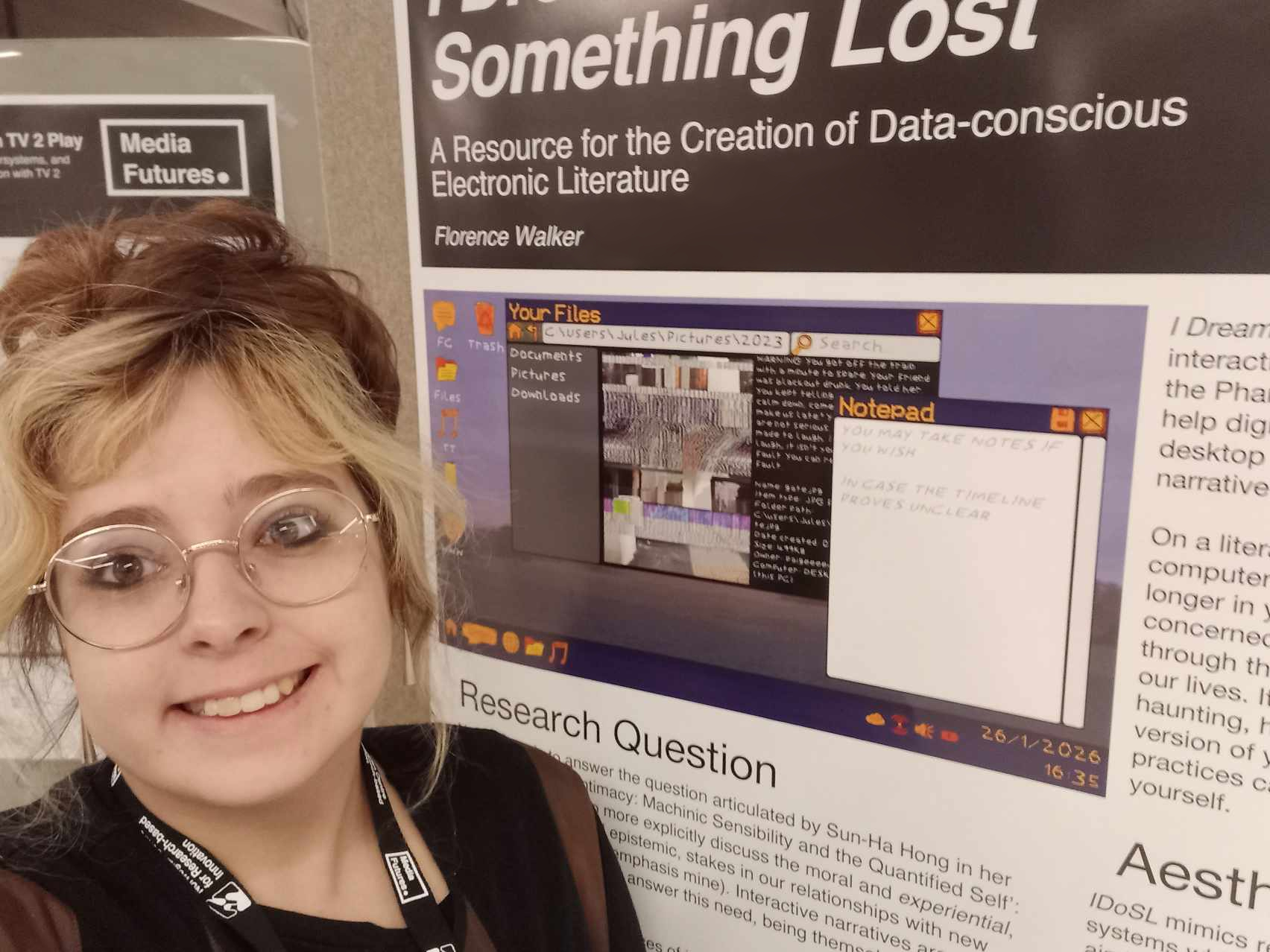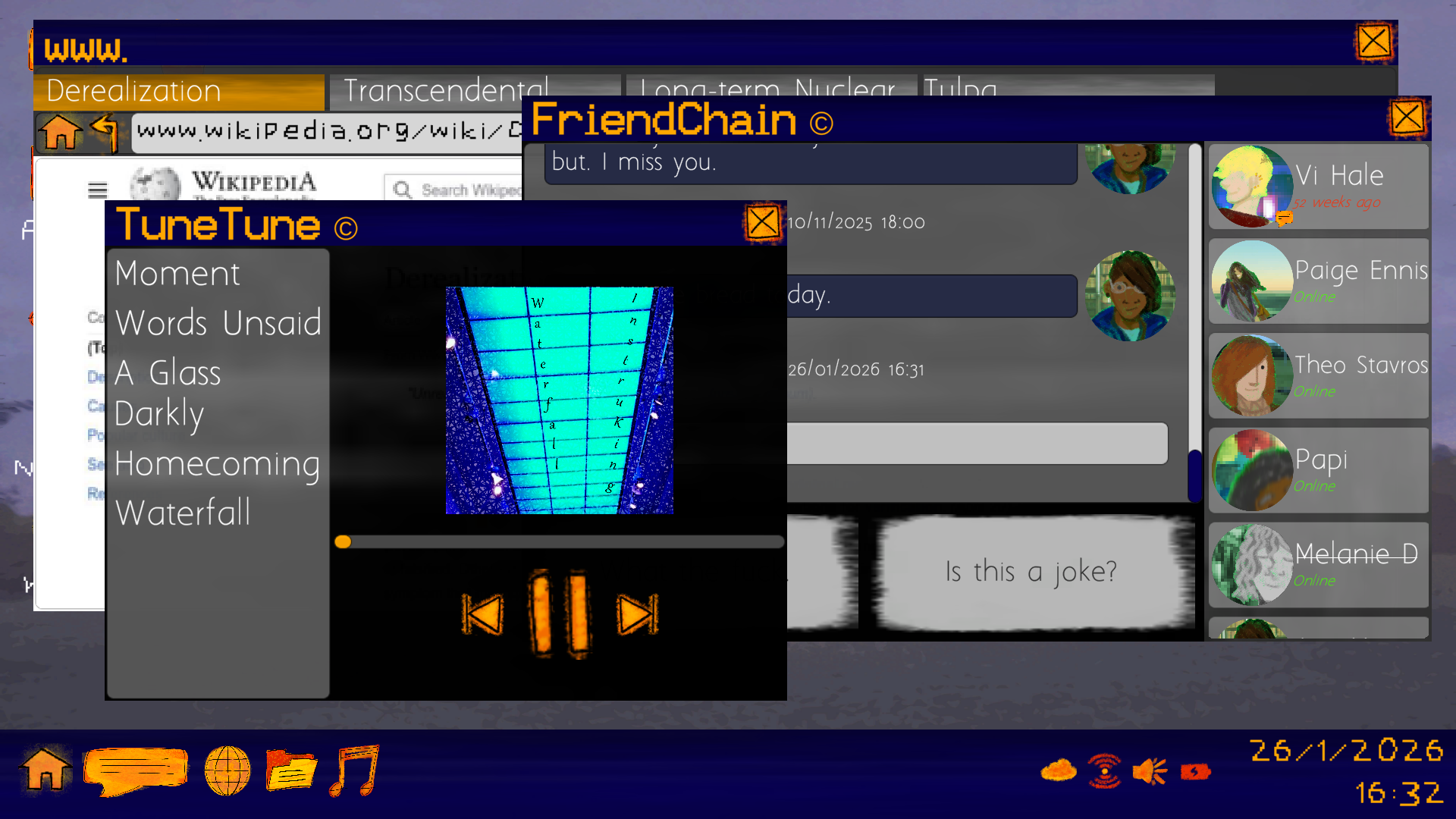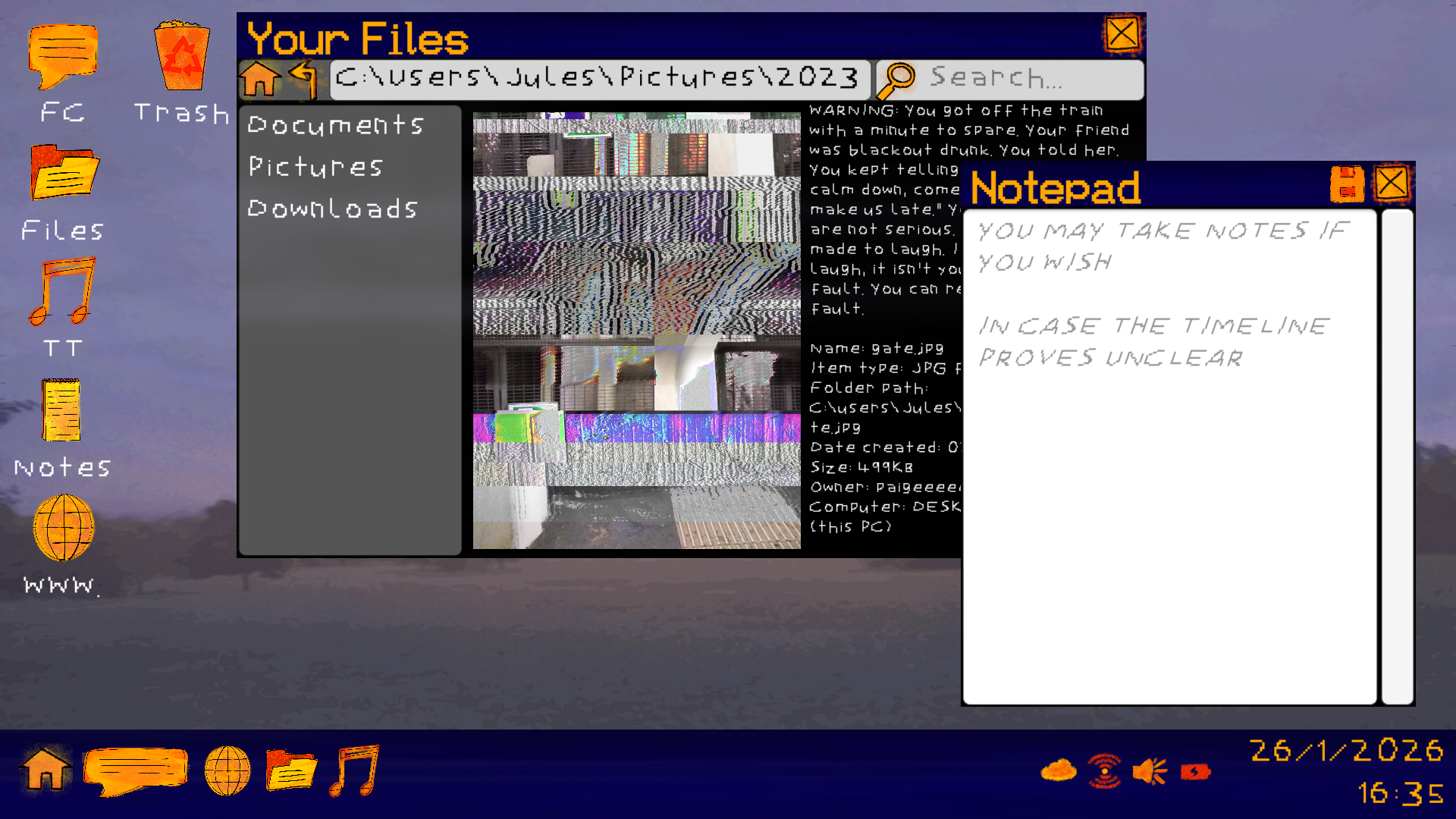With ‘I Dreamt of Something Lost’, former research assistant Florence Jane Walker has created an interactive story that explores data-conscious electronic literature. Having recently won the main category of the New Media Writing Prize, her project stands as a remarkable example of how one can combine literature and coding.
“I Dreamt of Something Lost” (IDoSL) tells the story of Jules, an agoraphobe who receives an instant message from their ex-girlfriend—who passed away exactly one year prior. On a literal level, IDoSL is about sitting at your computer and encountering somebody who is no longer in your life. On an emotional level, it is concerned with grief, loss, and memory – as mediated through the vast amounts of data that now permeate our lives. It is about the fragility of the digital historical record, about dealing with loss, and about the urge to save something that does not want to be saved.
The narrative acts as proof of concept for the Phantasos Template: a code library designed to help digital artists and writers work with a fake desktop interface. It was made with Unity and the ink narrative scripting language.
Double Recognition for IDoSL

“In all honesty, I’m a bit exhausted! All of the high emotions surrounding it have been quite draining. That said, I’m overjoyed. It’s a lovely confidence boost to have, as an emerging writer. It’s put a spring in my step.”, says Florence herself about the prize.
The New Media Writing Prize (NMWP) encourages and promotes the best in new-media writing and is leading the way toward the future of the ‘written’ word and interactive storytelling. This international event is now in its 13th year.
IDoSL won also the prize for the best Demo at MediaFutures Annual Meeting 2023. After proving that the story stands out among other projects, Florence gives a possible explanation for its success:
“Evaluating stories and art is always deeply subjective, so I don’t feel able to give a reason other than that. I could speculate that IDoSL speaks to a particular cultural moment we find ourselves in but, in my opinion, many of the other entries also did that. I think it’s difficult to make electronic literature without engaging to some extent with what the digital is and what it means to us today.”
The making of IDoSL
Florence’s written master thesis was largely concerned with documenting the making process – in particular, how she learned C# for the project. All of the code she wrote for IDoSL is available on GitHub, as well.
Her work aims to address the question posed by Sun-Ha Hong in the article “Data’s Intimacy: Machinic Sensibility and the Quantified Self”: how to explicitly discuss the moral, experiential, technical, and epistemic stakes in our relationships with new technologies. Florence believes interactive narratives are uniquely suited to this task, providing constructed experiences of play. Through a ‘fake-desktop’ narrative game, she explores the experiential qualities of personal data.

Florence’s work includes multiple layers, both explicit and implicit. At the end of the credits, she leaves a message for the reader: “I hope the things you grieve return to you, if only in some small way.” Other hidden messages within the prototype are left for readers to discover.
“It is my hope that this project can open a doorway for other artists and writers to explore data and/or the desktop interface through storytelling. I had very little experience with coding prior to starting work on the thesis – I want to send the ladder back down for others, however I can.”
Future projects
Florence Walker has several projects in the pipeline. She has a piece of electronic literature forthcoming from Crawlspace and recently participated in a collaborative work session with Declarations, an artistic research project exploring the poetic materiality of CSS. She is also in the early stages of developing a text-based game called “How to Make it Home,” where players navigate an alienating urban landscape at night. Additionally, Florence is gradually working on a novel.
“In short, I’m continuing to write and make things – sometimes with others, sometimes alone. I’m enjoying it a lot.”

